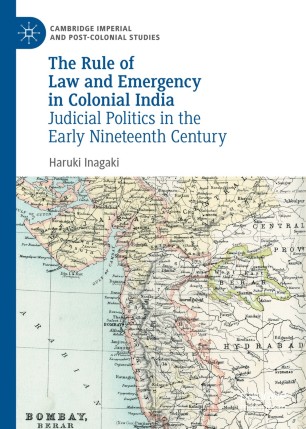This book takes a closer look at colonial despotism in early nineteenth-century India and argues that it resulted from Indians’ ‘forum shopping,’ the legal practice which resulted in jurisdictional jockeying between an executive, the East India Company, and a judiciary, the King’s Court. Focusing on the collisions that took place in Bombay during the 1820s, the book analyses how Indians of various descriptions—peasants, revenue defaulters, government employees, merchants, chiefs, and princes—used the court to challenge the government (and vice versa) and demonstrates the mechanism through which the lawcourt hindered the government’s indirect rule, which relied on local Indian rulers in newly conquered territories. The author concludes that existing political anxiety justified the East India Company’s attempt to curtail the power of the court and strengthen their own power to intervene in emergencies through the renewal of the company’s charter in 1834. An insightful read for those researching Indian history and judicial politics, this book engages with an understudied period of British rule in India, where the royal courts emerged as sites of conflict between the East India Company and a variety of Indian powers.
Praise for the book:
“Inagaki’s methodical study demonstrates how the Company’s disputes and eventual subjugation of the independent King’s Court in Bombay embedded the logic of state necessity and perpetual emergency into the governing fabric of the British colonial regime. In so doing, it offers a compelling and important new insight into how colonial rule privileged security and political order over the rule of law.” - Mark Condos
“Britain’s empire did not arrive fully formed in India. Haruki Inagaki’s superbly-researched, well-argued book traces its emergence in a proliferating set of arguments between different groups of British officers, who variously fought with and co-opted Indian elites. It traces the debates which raged amongst British officers about the character of Britain’s presence in India during the early nineteenth century, in doing so unravelling the fractured, debated character of the imperial enterprise itself. British India’s Imperial constitution was, he argues, forged within the opposition between radically different logics of power. Inagaki’s book offers a compelling account of the real life of empire in motion. A vital contribution to the burgeoning field of imperial legal history, it speaks well beyond narrow thematic categories, and is vital reading for anyone interested in the history of empire more broadly and the Indian subcontinent.“ - Jon Wilson
Further information is available here.
--posted by Mitra Sharafi
